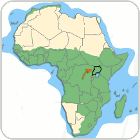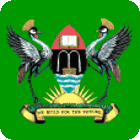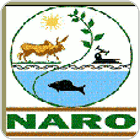Plant breeding programs in Uganda
The Republic of Uganda is a landlocked country in East Africa which enjoys fertile soils and regular rainfall. About 90% of the population directly derive a living from agriculture through the production of a wide range of crops for local consumption and/or export.
agriculture through the production of a wide range of crops for local consumption and/or export.
By 1960 there were three Uganda three research stations located in different regions of the country. Two of them belong to the public sector. Even with that early recognition, the human resources deployed in research and plant breeding in particular are very small. The entire country, including public and private, had only 19 plant breeders serving a population of 20 million people by 2001.
Given the constraints imposed by limited resources, not all crops are researched. Uganda’s breeding programmes tend to focus on crops of relatively high economic and social importance. Major activities are line development and line evaluation.
Financial support from the national government is meagre. The remuneration is very poor and acts as a strong disincentive to people seeking to enter or remain in the profession. The biggest constraints for plant breeding come therefore in the form of lack of financial resources for experiments and inadequate numbers of breeders.
Research and education institutes with activities in plant breeding
Public Institutes
 |
Faculty of Agriculture (Makerere University)
|
 |
National Agricultural Research Organization (NARO)
|
Private Institutes
 |
Nalweyo Seed Company (NASECO)
|
______________________________________
Information by George Bigirwa (2005). - Information based on the Uganda's full report from the PBBC survey. Last revised 26-06-2010, GIPB.
